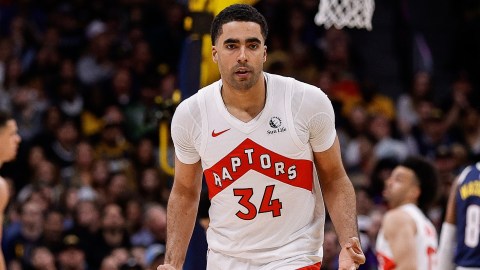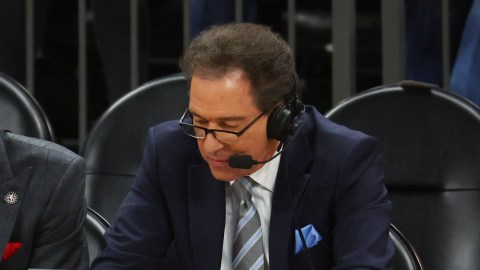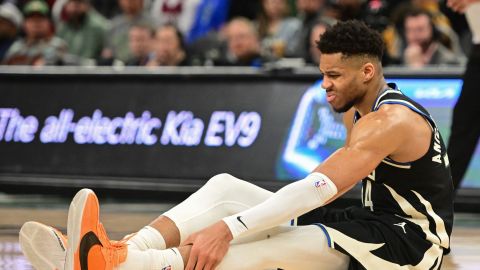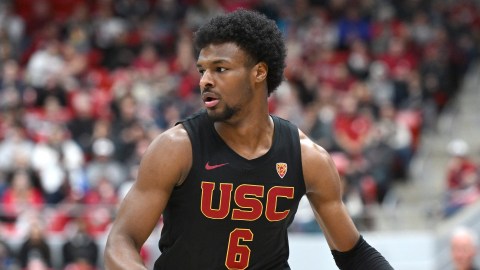If the Miami Heat had taken care of business and actually won these NBA Finals, we would have had to seriously reconsider everything we thought we knew about the NBA.
To say the least, this South Beach supersquad would not have been a conventional NBA champion. It had missing pieces, questionable chemistry and a shortcut route to success that gathered plenty of scrutiny along the way. When you think of a typical championship team, you don’t picture three superstars hastily slapped together with a bunch of spare parts. You think of a truer, more cohesive team.
The Heat tried and failed to silence all their critics in 2011. They’ll inevitably have more chances in 2012 and beyond. As long as LeBron James, Dwyane Wade and Chris Bosh are wearing the same uniform, you’re looking at a perennial threat.
If the Heat ever do win, they’ll have taken down a lot of conventional theories about what an NBA champion should be. Theories such as:
Theory No. 1: You need a lot of depth to win a championship
Here are a few numbers for you: 7, 7, 7, 8, and 6; 7, 6, 8, 7, 9 and 6. What do those digits represent, you ask? They just so happen to be the number of Heat players to score in each of the team’s 11 games in the Eastern Finals and NBA Finals this past month or so. Only once, in a loss at Dallas in Game 5 on Thursday night, did more than eight players in the Miami red and black put the ball in the hole. In Game 5 against the Bulls, remembered for its heroic comeback in the final three minutes, only six guys scored. Multiple times this postseason, the Heat had guys like Zydrunas Ilgauskas, Joel Anthony or Mike Bibby starting but failing to register a single point. The Heat were shallow and predictable. Can you win that way?
Theory No. 2: You need balance, both on the payroll and in the Xs and Os
The Heat had three max contracts and a bunch of guys playing for peanuts. The Mavs were a big-market team, but in a different way — Dirk Nowitzki was their only max guy, and the rest of their rotation was loaded with upper-mid-level players making between $7 million and $12 million. Stylistically, the teams reflected their payrolls. The Mavs had a balanced attack with a lot of different weapons while the Heat ran the ball through one of their All-Stars on every single possession.
Theory No. 3: You need a solid, conventional point guard to run the show
The Heat began the season with Carlos Arroyo running the point. They cut Arroyo in February. His replacement was Mike Bibby, who ran the show for the rest of the way except Game 6, at which point he mysteriously vanished from the rotation entirely. Then there was Mario Chalmers, always lurking in the rotation but never playing like a true point. He cared more about jacking up threes than running a team’s offense. Sure, the Heat have LeBron and Wade to handle the ball plenty, so maybe a real point guard isn’t necessary. But recent history is littered with elite guards like Chauncey Billups, Tony Parker and Rajon Rondo leading teams to championships. The Heat don’t have that guy.
Theory No. 4: You need a dominant big man to carry you in June
Remember last year’s Finals between L.A. and Boston? The dominating storylines were the oft-forgotten team numbers at the bottom of the box score — offensive rebounds, second-chance points, points in the paint. It was all about Pau Gasol and Andrew Bynum boxing out Kevin Garnett and Kendrick Perkins, winning the war inside. The Heat don’t win that way. Their starting bigs are Joel Anthony, who’s not an offensive player whatsoever, and Bosh, who’s notoriously hesitant to do anything in the post. The Heat tried to win a title this year with speed, athleticism and dazzling transition play. That plan failed them.
Theory No. 5: You need a veteran coach, preferably one who played in the league himself and knows firsthand how to win
Erik Spoelstra is a geek, not a jock. His playing career ended two decades ago at the lackluster mid-major University of Portland. He got where he is today not by proving himself on the court, as Doc Rivers and (once upon a time) Phil Jackson did, but in the library. He was a video guy. He studied film, he showed Pat Riley his keen basketball mind, and he worked his way up the ranks to become a head coach. You can see it in him — he’s an intellectual. Rather than spout inspirational cliches and truisms, he dissects the game scientifically. Can a coach like that motivate a team to win the game’s ultimate prize? It remains to be seen.
All of these theories are out there. They’ve been professed all year long by critics looking for an angle to dismiss the reviled Heat.
If Miami had won, they could have proven all of them wrong.
Instead, we’re left to wonder.
We’re at a transitional point in today’s NBA. The old guard of Shaquille O’Neal and Tim Duncan is fading; the new elite, led by LeBron and Derrick Rose, is on the rise. But it’s more than just faces that are changing. It’s ideas. It’s the fundamental beliefs about how championships are won and lost in this league.
The Heat are trying to revolutionize the way we approach the game. This year, they failed, but in 2012, conventional wisdom will be on guard again. This team will continue trying to change the basketball world.



